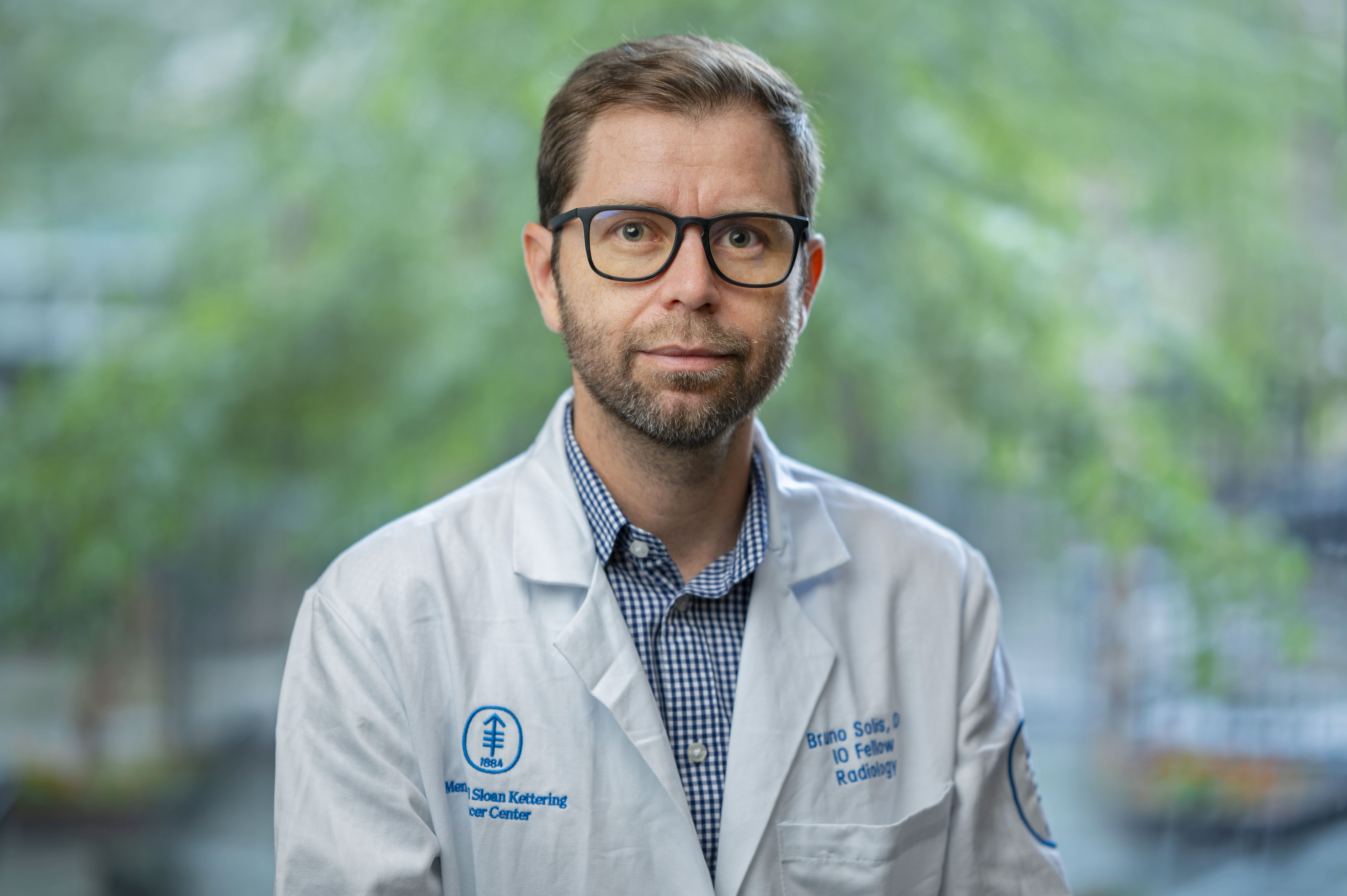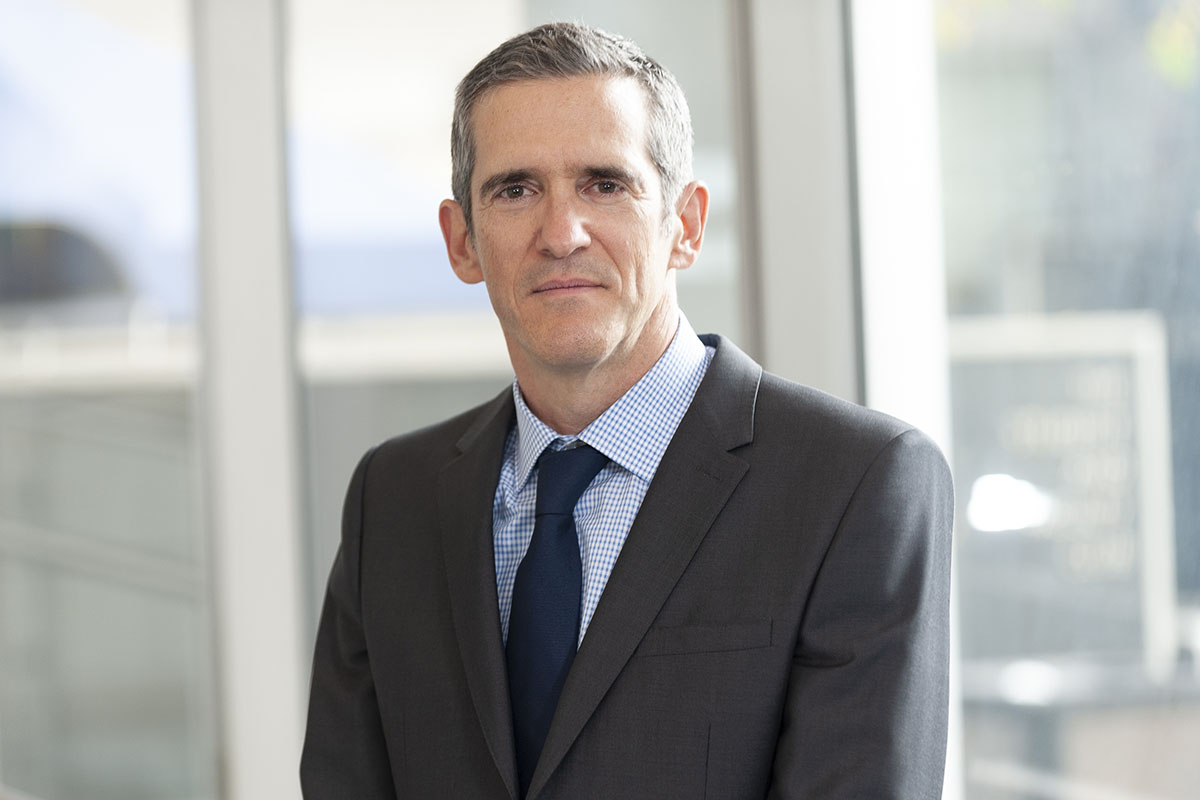The Interventional Oncology (IO) Fellowship at Memorial Sloan Kettering Cancer (MSK) is dedicated to providing future interventional oncologists with complete IO training that encompasses the broad extent of IO, including but not limited to ablation, embolization, cementoplasty with screw fixation, kyphoplasty, vascular interventions, and supportive care for patients with cancer.
MSK’s academic programs and resources, tradition of clinical and scientific excellence, and high-quality procedures and subspecialty programs provide fellows with a supportive environment for clinical learning and scholarship. In addition to offering unparalleled oncologic training administered by experts, the IO fellowship runs parallel to MSK’s residency in Interventional Radiology (IR), offering opportunities for collaboration in patient consultation, procedures, and teaching conferences at the main hospital and at the Koch Center. However, the fellowship is distinguished by its comparatively larger emphasis on research pursuits.
Mission Statement
The IO fellowship program prepares residents for a successful career in IO by teaching them:
- The role of image-guided interventions
- The multidisciplinary options to perform image-guided interventions independently
- How to use clinical skills to support the establishment of an effective, patient-centered private, academic, inpatient, or outpatient IR practice. Providing thoughtful and compassionate professional care as a clinician and in support of colleagues.
Program Aims
- Create an environment for IO fellows to gain proficiency in the independent performance of image-guided interventions by leveraging dedicated support from leadership, attendings, practice extenders, ancillary staff, and institutional and departmental facilities and resources.
- Promote lifelong learning to understand the role of image-guided interventions, multidisciplinary options, and effective clinical management of patients through didactic lectures, conferences, morning rounds, self-guided learning, and patient care.
- Train IO fellows on thoughtful and compassionate patient-centered inpatient and outpatient clinical care by promoting longitudinal care, evaluation, and management.
- Cultivate a desire for quality research- and evidence-based practice by securing protected time away from procedure rooms to recuperate, learn, and conduct research.
- Encourage professionalism and productive interpersonal and communication skills.
Program Description
Along with MSK’s interventional radiology residents, IO fellows choose the procedure rooms that best align with their learning journey on a daily basis. Room selection is based on a rotating hierarchy picking system; on the first day of the week, the resident has the first pick of rooms; on the second day, they have the second pick; on the third day they have the third pick, and so on and so forth. Daily choice options include four hybrid rooms, as well as two advanced standalone fluoro suites and a positron emission tomography (PET) procedural suite at the Main Hospital, three hybrid rooms, and a PET procedural suite at the Koch Center. Fellows see patients before their respective procedures and follow the patients through sign off, establishing patient ownership and longitudinal care.
Fellows also regularly take part in the IR clinic, where they see patients both virtually and in person, and read for the Vascular Lab, which prepares fellows to sit for the Registered Physician in Vascular Interpretation (RPVI) exam. Fellows enjoy a post-call, out-of-rooms day for research and investments in well-being. Additional research time is allotted to fellows based on the extent of their projects. Fellows typically complete at least one research project to present at meetings and produce first authorship papers.
Why Choose MSK for IO Fellowship Training
- World expertise and training in oncology treatment modalities, including ablation and embolization
- Large, comprehensive range of vascular interventions, such as acute and chronic venous disease, pulmonary embolisms, peripheral arterial disease (including limb salvage), dialysis access, and portal hypertension
- Innovative interventions (i.e., neuro infusion, meningeal artery embolization, cementoplasty with screw fixation)
- Bread and butter interventions (i.e., treating bleeds, abscesses, placing nephrostomies, biliary catheters and stents, and performing lymphangiograms, kyphoplasties, biopsies, venous access, and pediatric interventions)
- Attendings dedicated to the success of trainees, both at MSK and in the future. Active investment in helping residents find great jobs.
- Autonomy as conferred per the ability of the growing resident
- Practical strategies for well-being
- Inclusive and diverse environment
- Advanced physician providers support for residents, to optimize patient care during training
- Training in the Vascular Lab to support resident study for the Registered Physician in Vascular Interpretation (RPVI) exam
- Strong research environment with resources to present at conferences/medical meetings and publish
- Subsidized housing near hospitals
- High-end procedure suites, including hybrid rooms (fluoro and CT in one room) and PET scans for PET-guided biopsies and ablations
- IR clinic where residents see patients virtually and in person
- Dedicated office space with Picture Archive and Communication System (PACS) and dictation
- Daily morning rounds to present past and present patient cases at weekly tumor boards, monthly Mortality and Morbidity conference, monthly didactic, and monthly inter-institutional case conference
- Within a vibrant, bustling city with lots to do
Life on the Upper East Side
Memorial Sloan Kettering Cancer Center offers housing to incoming IR residents in the immediate vicinity of MSK’s Main Campus on the Upper East Side of New York City. The Upper East Side is a very safe neighborhood with ample access to the waterfront (East River jogway/walkway) that is in walking distance to Central Park and home to many families with young children, as well as excellent schools. Many world-renowned hospitals in addition to MSK’s — including NewYork-Presbyterian/Weill Cornell, the Hospital for Special Surgery, and Rockefeller University — reside in the Upper East Side. The rest of the city is easily accessible via subway, particularly from the number 4, 5, 6, F, and Q lines.
Current Residents

Pictured: Interventional Oncology fellow Bruno Solis Ugalde.
- Bruno Solis Ugalde
How to Apply
We welcome applicants to apply to the IO Fellowship through our online EMBARK application portal. EMBARK is very user-friendly and requires to upload the following documents:
- SBI universal application
- Personal statement
- CV
- USMLE transcript
- Medical school transcript
- Three letters of recommendation
- Proof of at least 10 months of IR training or practice with the types of procedures performed
Applicants: Once you have completed the application, please notify the program coordinator, Jennifer Beacom, who will go into EMBARK and verify that your application is complete. If at any time you cannot upload a document to the application portal, please email Jennifer.
Applicants are required to provide proof of receipt of at least 10 months of interventional radiology training or practice prior to application. The caliber of procedures performed in training and/or practice will be taken into account as applications are reviewed. The recruitment process is merit-based and inclusive, with the utmost emphasis on eradicating bias based on race, gender, sexual orientation, ethnic origin, etc. We interview a wide range of applicants with various backgrounds irrespective of program, board scores, or research.
Service Chief
Stephen Solomon, MD


